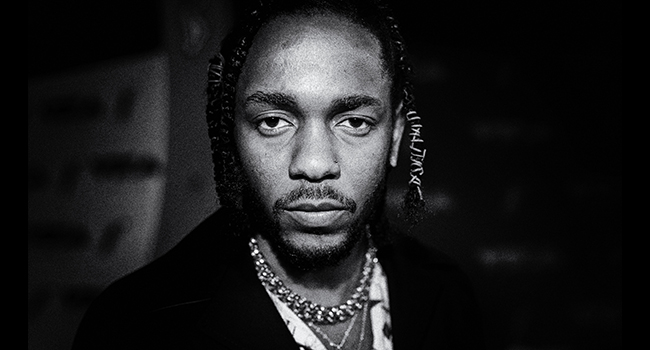
MTV may have used this year’s VMAs to set things right as far as Kendrick Lamar is concerned, finally awarding him the well-deserved Best Hip-Hop award after giving him the opening performance slot, but — aside from a few quick cameos from Lil Uzi Vert and Nicki Minaj, the show barely even acknowledged hip-hop in any of the year’s nominations and almost none of its wins.
The only other rap performances booked for the evening were Logic, with a moving performance of “1-800-273-8255,” and Cardi B, whose smash hit “Bodak Yellow” felt like an afterthought, crammed in at the beginning of the pre-show instead of being highlighted alongside the other big names on display. Actually, a lot of the rap inclusions throughout the night felt like afterthoughts or tacked on offerings, other than Kendrick’s fiery opener.
These programming decisions may also explain why MTV has been scrambling to recover its identity, rebooting Gen-X favorites like Total Request Live and Fear Factor for a millennial generation that consumes the majority of its media via cell phone. Hip-hop is the most popular genre in the United States now, so why is Cardi B relegated to opening a pre-show, and why is Gucci Mane only just now winning an award by association with a girl-pop group? That isn’t a knock on girl pop, by the way, it’s a legitimate question: Would anyone at MTV have suggested him for any award without the association with Fifth Harmony?
Just looking at the nominations for best hip-hop, it looks like half of the selections were from last year, not this one. Almost every selection for Artist Of The Year is a pop singer, with only Kendrick nominated as the sole representative of hip-hop for an award he ultimately lost to Ed Sheeran, whose 2017 consisted of unplugging from Twitter and a cameo on Game Of Thrones. Bruno Mars released a couple of snazzy videos, but hasn’t really been in the limelight much since the Grammys, way back in February.
Meanwhile, Jay-Z redefined — again — how the industry processes success while emptying his closet of skeletons in a decidedly less controversial way than say, Eminem. Whether or not you feel Drake is falling off, he is still currently living in hip-hop’s upper class, and whether or not songs from More Life had any — ahem — life in them after the “playlist” dropped, the Drake co-sign is still basically rocket fuel to any young artist’s career. See his OVO Fest lineup from this year for more proof, if you need it. So why were these two names so conspicuously absent?
So many rap projects released this year that either broke the mold or advanced the genre in some way that MTV’s seeming refusal to acknowledge anyone more than Kendrick and rockstar Lil Uzi feels like a slap in the face to everyone who grew up on hip-hop — and in 2017, that means literally everyone. Ask any student on even the most homogenized college campus in America what they’re listening to, and I’ll bet they name at least two rappers before they get to a Shawn Mendes, Fifth Harmony, or even the excellent Julia Michaels. Again, this isn’t to dump on those artists; they have their followings, which are still huge, but they are going to have to share space with rappers — good ones, new ones, ones who sing, etc. — if MTV wants to stay in touch with the cultural makeup of America.
America isn’t just this lily-white, Leave It To Beaver place anymore, no matter how many “Make America Great Again” hats show up to protest the downfall of Confederate statues, and truthfully, it never was. That was just the image our media projected for far too long. Additionally, statisticians and researchers have continually begun to point to the fact that people of color are going to be the majority in America very soon. As much as MTV wants to stay “hip” to the demographics of the heartland, the fact is, most people — especially young people (i.e., the people MTV most wants to be in tune with) — have already adapted to the ever diversifying world we live in. Most of us already live side-by-side with people of all nationalities, ethnicities, religions, and cultures, and adapt accordingly. It’s already happening; why else would hip-hop be considered the most popular genre in the US?
At some point, we are all — not just MTV, but the whole US — going to have to reckon with the fact that the world isn’t just changing in front of us, it’s doing so at warp speed. We’re seeing exponential increases in computing power, people are traveling more and learning more, and for whatever reason, for the foreseeable future it looks like the music that speaks to them is hip-hop. So speak to them. It’s past time for our awards shows and televisions to reflect what we actually look like, what we sound like, and what we actually listen to.






